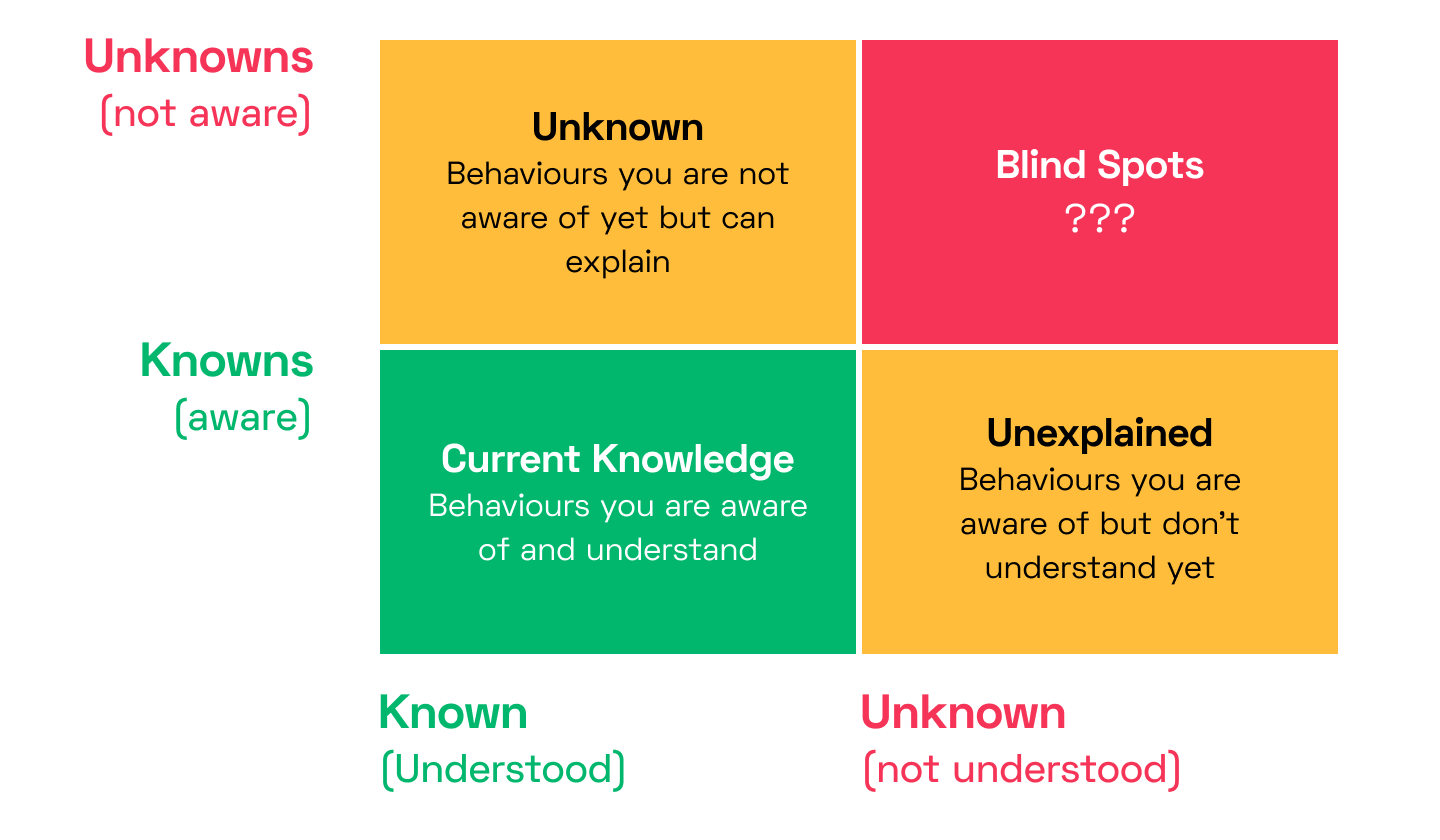Effective remote research
Conducting effective remote interviews
Conducting effective user research is crucial for understanding your users’ needs and improving their experience. Here are some strategies to consider before, during, and after a research session.
Before the Session
Create a Research Plan
A well-defined research plan ensures that you and your team have a clear purpose for the study. Start by questioning your assumptions about the problem. Use tools like a modified Johari window to structure your thoughts.
 A modified Johari window
A modified Johari window
Recruit the Right People
Recruiting the right participants is crucial. Be aware that people may not always answer screener questions honestly, especially on platforms like usertesting.com. Frame your questions to avoid leading participants to “desirable” answers.
During the Session
Keep Video On
Encourage participants to turn on their video by setting an example. This helps in creating a more personal and informal atmosphere, making it easier to read non-verbal cues.
Put People at Ease
Use icebreaker questions to start the conversation smoothly. Outline what the session will entail and assure participants that they can decline to answer any questions they’re uncomfortable with.
Rights and Consent
Inform participants of their rights and obtain their consent for recording the session. Be transparent about the purpose of the research and how their feedback will be used.
Keep It Informal
Maintain an informal tone throughout the session to make participants feel more comfortable.
Avoid Leading Questions
Ensure that your questions are neutral and don’t lead participants towards a specific answer.
Ask Open-Ended Questions
Open-ended questions encourage more detailed responses than yes/no questions and provide richer insights.
Listen!
Practice active listening. Allow for pauses in the conversation, giving participants time to reflect and provide additional information.
After the Session
Reflect on what you think you know and what you have learned. Consider any biases that may have influenced your interpretation of the data.



